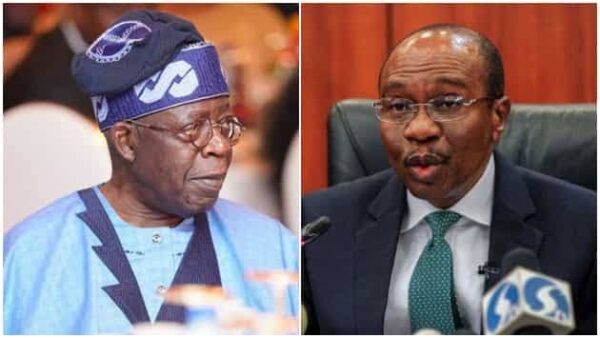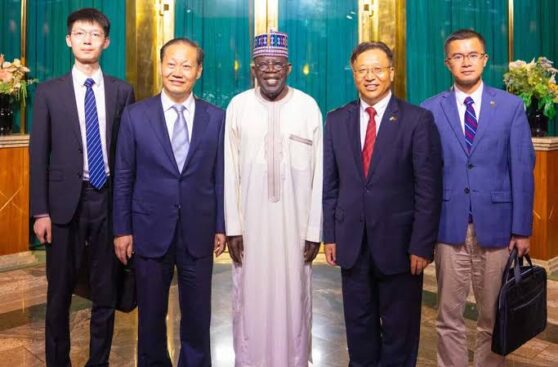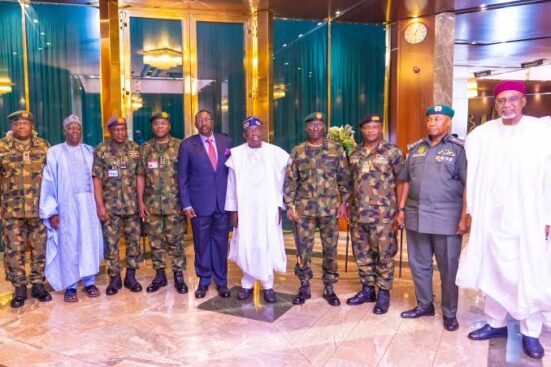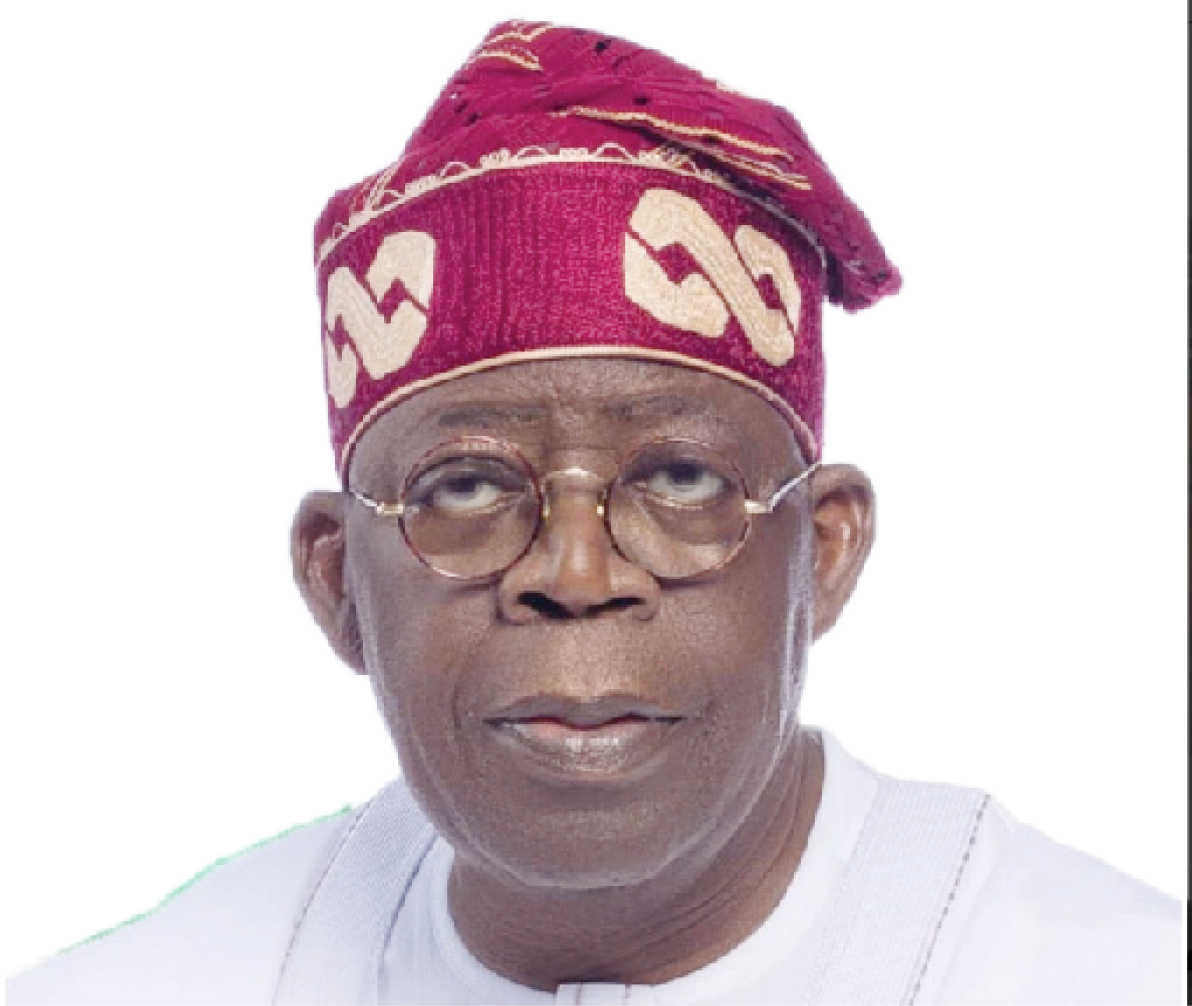Bola Ahmed Tinubu was inaugurated as the 16th President of Nigeria seven days ago at the Eagle Square, Abuja.
In his inaugural speech, he made certain promises including the pledge to rule in the interest of Nigerians.
He said his administration “shall govern on your behalf but never rule over you,” and that they will “consult and dialogue but never dictate.”
He added that “we shall reach out to all but never put down a single person for holding views contrary to our own. We are here to further mend and heal this nation, not tear and injure it.”
There have been some decisions and certain events that took part within the first week of the new government. Daily Trust takes a look at some of those major happenings.
- Violence marred presidential election in Rivers – Witness
- Five ways to survive harsh effect of fuel Subsidy
Fuel subsidy termination
On May 29, during his inauguration, Tinubu declared that there would no longer be a petroleum subsidy regime as the current 2023 budget did not contain it.
The new President stated that “subsidy is gone” and that funds for subsidies would be diverted to other things such as public infrastructure, education, health care and jobs.
“We commend the decision of the outgoing administration in phasing out the petrol subsidy regime which has increasingly favoured the rich more than the poor. Subsidy can no longer justify its ever-increasing costs in the wake of drying resources,” he said in part.

Meeting with Emefiele, Kyari
A day after his inauguration on Tuesday, May 30, President Bola Tinubu met behind closed doors with the Governor of the Central Bank of Nigeria (CBN), Godwin Emefiele and the Managing Director of the Nigeria National Petroleum Company Limited ( NNPCL), in an apparent effort to address the fallout of fuel subsidy removal.
The meeting was his first official assignment in the Presidential Villa, starting with the critical sectors, following the return of fuel queues, as marketers hiked the pump price to as high as N700 per litre in reaction to the fuel subsidy removal.
Meeting with Labour leaders
On Wednesday, May 31, Tinubu led a delegation of the federal government in a meeting with members of the organized labour over the proposed strike in protest of the petrol subsidy removal. The President enagaged with leadership of the Nigeria Labour Congress (NLC) and Trade Union Congress (TUC).
The NLC later issued a notice of nationwide strike, starting from Wednesday June 7, over the fuel price hike resulting from the removal of fuel subsidy.

Recieved special envoy of Chinese President
Tinubu held a bilateral meeting with Chinese Special Envoy, led by the Vice Chairman of the Standing Committee of the National People’s Congress, Peng Qinghua, at the Presidential Villa, Abuja. The delegation also included the Chinese Ambassador to Nigeria, Cui Jianchun and his deputy.
Announcing the meeting on social media, the President wrote, “I received the Special Envoy of Chinese President XI Jinping and Vice Chairman of Chinese National People’s Congress, HE Peng Qinghua, at the State House, earlier today. I look forward to stronger diplomatic ties and increased economic cooperation between our two countries.”

Meeting with Service Chiefs
On Thursday, June 1, Tinubu held his first formal meeting with the security heads of the country.
Among those, who met with President were the Chief of Army Staff, Lt. Gen. Farouk Yahaya; Chief of Naval Staff, Vice Admiral Awwal Gambo; and the Chief of Air Staff, Air Marshal Isiaka Amao, the Inspector-General of Police, Usman Alkali Baba.
Others were the Director-General of the Department of State Service(DSS), Yusuf Bichi; the Director-General of the National Intelligence Agency (NIA), Ahmed Rufai Abubakar.
The Chief of Defence Staff, General Irabor led the service chiefs and other heads of security agencies into the Presidential Villa, Abuja, for the meeting. The President told them to work in unison to tackle insecurity in the country, adding that he would not allow them to work at cross-purpose.
Meeting with Progressives Governors Forum
On Friday, June 2, Tinubu on Friday met with governors elected under the platform of the All Progressives Congress (APC) in Abuja.
One of the governors, Babajide Sanwo-Olu of Lagos State, in a tweet, said, “We visited the presidential villa in Abuja to discuss the visionary plans of Mr President, as well as the pressing matter of subsidy removal from petroleum products, which has affected the residents of our states at different levels.”
Made first set of appointments
Tinubu on Friday also made his first set of appointments including the Secretary to to the Government of the Federation (SGF), Chief of Staff and Deputy Chief of Staff.
In a statement issued by the Director, Information, State House, Abiodun Oladunjoye in Abuja on Friday, Tinubu appointed Speaker of the House of Representatives, Femi Gbajabiamila as the Chief of Staff, and Senator Ibrahim Hadejia, a former Deputy Governor of Jigawa State, as the Deputy Chief of Staff.
The President also appointed the former Benue State Governor, Senator George Akume as the Secretary to the Government of the Federation (SGF).
Meeting with Wike, Ibori, Makinde
The President also met with the former governor of Rivers State, Nyesom Wike; the former governor of Delta State, James Ibori; and the Oyo State governor, Seyi Makinde, at the Presidential Villa, Abuja.
Ibori and Tinubu served as governors between 1999 and 2007, while Wike recently left office after completing eight years.
Wike and Makinde are members of the Peoples Democratic Party (PDP) and belong to the group of governors, the G-5, that worked against their party presidential candidate, Atiku Abubakar in the February 25 elections.
Ibori was said to have worked for the All Progressives Congress (APC) in the last general elections as his preferred candidate for the PDP governorship election lost to the candidate of the former governor Ifeanyi Okowa.

 Join Daily Trust WhatsApp Community For Quick Access To News and Happenings Around You.
Join Daily Trust WhatsApp Community For Quick Access To News and Happenings Around You.


